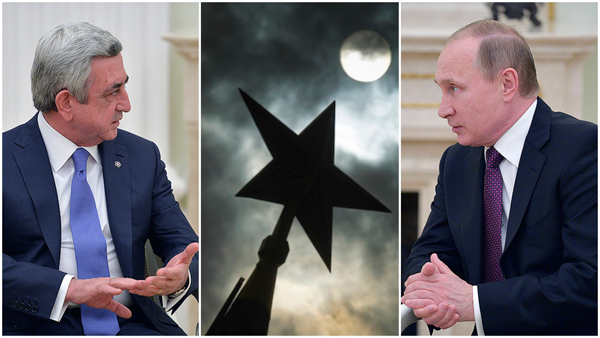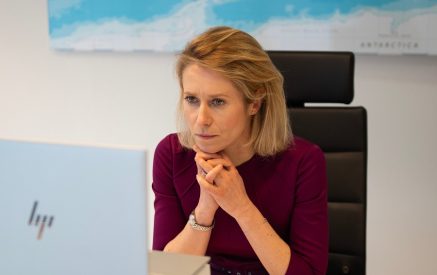Every time, when Serzh Sargsyan leaves for Moscow to meet RF President Putin, after the meeting various versions are discussed regarding the atmosphere and the possible outcomes and consequences of the negotiations.
Judging by the publications of Russian periodicals, Moscow was slightly surprised at the demands of the official Yerevan. Even an article was published in “Kommersant” newspaper with a heading of “Armenia’s authorities continue the pressure over the Russian investors”, which stated that after the demands on ENA tariff policy owned by Inter RAO that led to the sale of assets, problems have occurred with “Russian railways”, and Armenia’s anti-monopoly regulating body believes that the “South Caucasian railway” owned by “Russian Railways” does not raise the price naturally, by inflating the expenses planned by the investment projects and selecting expensive contractors. Then it noted that the investments of Russian companies in Armenia are significantly politicized, and the companies need to extremely cautiously change the tariff policy.
On March 10, at the Sargsyan-Putin meeting in the Kremlin, Russian President with his one expression stated the available problems, by saying, “There are certainly some problems of the objective nature, and I mean first of all our economic cooperation, though here too we understand that overall we can be content with the foundation we laid for our relations.” Serzh Sargsyan probably did not consider it necessary to once again publicly state that Armenia supports Russia’s position on Syria if he were sure that a few days after this meeting, Putin would instruct Russia’s main armed forces to withdraw from Syria.
It is known that Russian Prime Minister Dmitry Medvedev is going to visit Armenia in the near future. It is already clear that Sargsyan-Putin meeting failed to reach an agreement on gas price and the negotiations will continue.
Read also
It is noteworthy that a day before S. Sargsyan’s visit to Moscow, RA Foreign Minister Nalbandyan said to “Kommersant” that Armenia cannot be delighted with the fact that Azerbaijan is buying weapons from ally Russia, however, there was no remark from Putin on this issue and the Nagorno-Karabakh peace process after the Sargsyan-Putin meeting.
A day after the Armenian-Russian talks, Chairman of the State Duma, Sergey Naryshkin, also preferred to speak about the fact that Turkey with its actions destabilizes the situation in the Middle East and that “Armenia has an important role in the peace process.”
It should be noted that the Chairman of Russian State Duma is also the Chairman of the CSTO PA Council, and it would be good if he had touched upon the stance of Azerbaijan, to Serzh Sargsyan’s famous speech pertaining to it when the President of Armenia accused the CSTO partners of indifference.
It was noteworthy that the next say after the Sargsyan-Putin meeting, the Russian presidential spokesperson Dmitry Peskov’s wording about “the existing international formats” on Nagorno-Karabakh conflict, one expression which Baku is seeking to give “flesh and blood” for years aiming either to block the OSCE Minsk Group activities or expand the format of the existing co-chairmanship. Incidentally, prior to the Sargsyan-Putin meeting, Azerbaijani Foreign Minister Araz Azimov who is well aware of the nuances of the Nagorno-Karabakh negotiations and is considered to be the “brain” of official Baku, again openly said, “The use of the full format of the Minsk Group may become a tool for an additional pressure against Armenia by the international community. I think that, for example, the activity and role of Germany, Sweden and Turkey in the Minsk Group may be more effective.”
One gets the impression that the Russian authorities are more concerned and worried about the offers and demands of the economic and energy sector addressed to Moscow by Armenian authorities. Well, raising the problems related to the security of our country and talking about them publicly and openly, Russian side does not give much importance to it or is constrained to voice them clearly.
It can be assumed why. Maybe Aliyev’s “tears” leave a bigger impact on Moscow rather than the just demands and worries from strategic ally Armenia.
EMMA GABRIELYAN,
Aravot Daily






















































